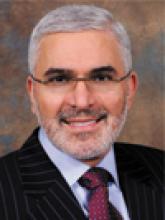Discuss this article at http://currentpsychiatry.blogspot.com/2011/02/two-vastly-underutilized-interventions.html#comments
Many psychiatrists would agree that schizophrenia is the most devastating psychiatric brain disease. Its disabling effects result in stigma, unemployment, poverty, loneliness, homelessness, victimization, incarceration, malnutrition, infections, social isolation, ostracism, discrimination, suicide, poor health, medical neglect, and early death.
The consequences of schizophrenia are in many ways more malignant than those of cancer, where sympathy, prompt medical care, and preservation of friends and employment are assured. Also, unlike schizophrenia patients, persons with cancer are never hauled to jail, even when a slow-growing brain tumor causes erratic or violent behavior.
The outcome of schizophrenia has not improved much since patients were “freed” from state hospitals before the psychopharmacology era. Despite the availability of antipsychotics that can control delusions and hallucinations, few persons with schizophrenia achieve remission, let alone recovery. Although negative symptoms and cognitive deficits remain untreatable, the quality of life for persons with schizophrenia can be far less miserable if psychotic symptoms are fully remitted. So why do so many patients with schizophrenia suffer continuous or episodic psychosis that renders their lives a living hell and leads them to inexorable clinical, social, and functional deterioration?
Based on 3 decades of clinical and research work with thousands of patients afflicted with schizophrenia, I have observed that most psychiatrists are not exploiting 2 treatment options that could effectively alleviate continuous or relapsing psychosis. Let me elaborate:
- Continuous, unabated psychotic symptoms (delusions, hallucinations, bizarre behavior, and thought derailment) implies either refractory or treatment-resistant schizophrenia. This means that several antipsychotic trials already have failed to suppress psychotic symptoms. Only 1 drug has been proven to help such patients: clozapine. It was FDA-approved for refractory schizophrenia 22 years ago, and many studies—including the Clinical Antipsychotic Trials in Intervention Effectiveness (CATIE) trial—show that it also is superior to other antipsychotics for treatment-resistant schizophrenia. Yet while about 30% to 35% of patients have refractory or treatment-resistant schizophrenia, only one-sixth of that eligible pool receive clozapine. Reasons include the “hassle” of monitoring, the fear of agranulocytosis (which is rare), and concern about serious side effects. As a result, hundreds of thousands of patients suffer needlessly because they have not received clozapine (full response may take 6 to 12 months in some patients, but only 3 months in others).
- For patients whose delusions and hallucinations do respond to nonclozapine antipsychotics, psychotic episodes are most likely caused by nonadherence to oral medications. All psychiatrists are aware that partial or complete nonadherence is ubiquitous in schizophrenia for multiple reasons, including lack of insight about being ill and needing treatment, suspiciousness (positive symptoms) about drugs, amotivation and avolition (negative symptoms), poor memory or planning ability (cognitive deficits), and toxic effects of alcohol and drugs. Therefore, many psychotic relapses occur needlessly because of inevitable nonadherence with oral medications. In my clinical estimate, this occurs in 50% to 60% of patients who had responded well to oral antipsychotics in the past. The tragic consequences of recurrent relapses is not only re-experiencing the anguish of reality-shattering psychotic states, but also progressive brain atrophy resulting from the “neurotoxic” effects of psychosis, and, unfortunately, progressive development of treatment resistance with each relapse.
The most logical solution to avoid psychotic relapses resulting from nonadherence is long-acting injectable (depot) antipsychotics, which have a large body of data (including FDA registration trials) documenting successful relapse prevention. It is incomprehensible why long-acting formulations are not used in at least 30% to 40% of patients instead of the 6% to 8% who currently receive them. They also should be given to all schizophrenia patients incarcerated for violent acts. Furthermore, there is no reason not to use injectable formulations early in the illness course—after 1 or 2 relapses—to halt or prevent the clinical and functional deterioration that occurs with multiple relapses. In my experience, the stabilization and full remission that occur after 18 to 24 months of continuous adherence with a long-acting injectable antipsychotic can be remarkable and gratifying to patients, families, and psychiatrists.
In summary, intensified research is needed to discover the next generation of pharmacotherapeutic agents that can treat all symptom domains of schizophrenia (positive, negative, cognitive, mood, and substance use). In the meantime, a wider use of those 2 available interventions—clozapine in refractory and treatment-resistant patients and long-acting injectable antipsychotics in nonadherent patients—can make a palpable impact on improving clinical and functional outcomes of patients suffering with schizophrenia. These 2 interventions might make a significant dent in the atrociously high rate of incarceration because of psychosis-induced illegal behaviors. The financial savings in hospitalization and forensic costs can be substantial. But most important, preventing psychosis and incarceration would mean a measurably better life for patients.


